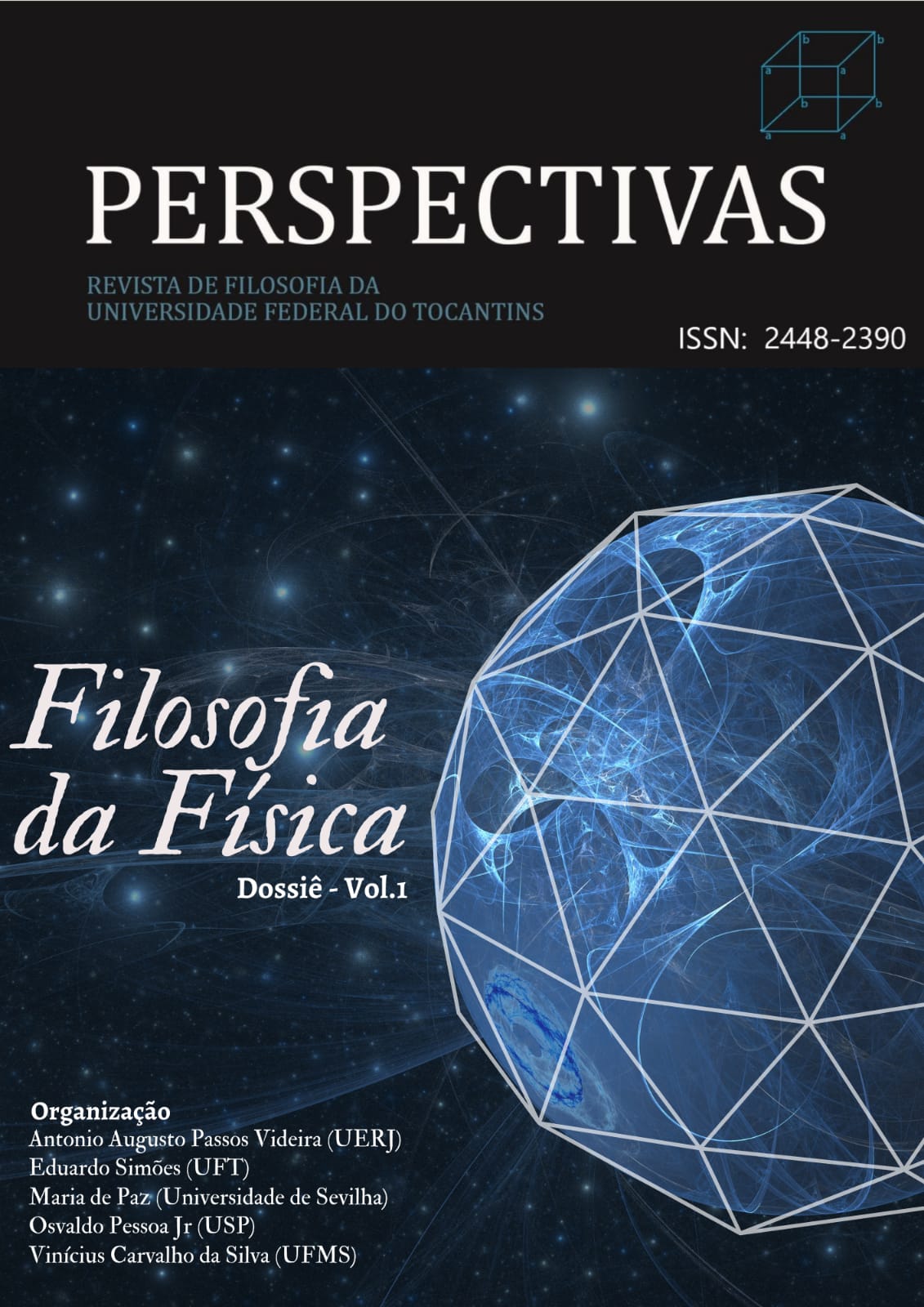Whitehead and the Lisbon School of Quantum Physics
DOI:
https://doi.org/10.20873/rpv7n2-42Resumen
In the controversy on the philosophical foundations of quantum mechanics Whitehead's philosophy of organism has an essential place. But its realistic position invalidates any attempt to relate it to the School of Copenhagen's “orthodox interpretation”. Unlike, the Eurhythmic Physics developed by the Lisbon School has notable theoretical tunings with Whitehead's philosophy. In both, the notion of passive matter disappears; entities are understood as ecstatic process of becoming arising from a continuum of potentialities; and they achieve physical persistence grace to a set of synergistic interactions among their own regimes of rhythmical activity. The principle of Eurhythmy proposed by Prof. Croca then appears as the hypothesis, in contemporary theoretical physics, corresponding to the organicist vision of a universe in a developmental process of realization of the abstract potentiality of all possible worlds: a universe that, as a living organism, should be described as guided by an immanent teleological principle.
Citas
BOHR, N. “Introductory survey to the Atomic Theory and the Description of Nature” (1929), “Maxwell and modern theoretical physics” (1931), in J. Kalckar, (Ed.), Niels Bohr Collected Work, Vol. 6: Founda-tions of Quantum Physics (1926-1932), Amsterdam: North-Holland 1985.
COUTURAT, L. “L'Algébre Universelle de M. Whithead”, «Rev. de Mét. et de Morale», VIII, 1900.
CROCA, J. R. “Hyperphysics – The Unification on Physics”, in J. R. Croca and J. E. F. Araújo, A New Vision of PHYSIS, Eurhythmy, Emergence and Nonlinearity, Lisbon: Center of Philosophy of Science at Uni-versity of Lisbon, 2010.
______., Silva, M. M. “Physics of the Becoming”, in J. R. Croca, P. Alves, M. Gatta , (Eds.), Space, Time and Becoming; Lisboa: Cátedra A Razão, Faculdade de Letras da Universidade de Lisboa, 2013.
______. Beyond Space and Chronological Time. The Physics of Becoming, Berlin: Lambert Academic Publish-ing, 2021.
HEISENBERG, W. Physics and Philosophy, London: George Allen & Unwin, 1971 (1958).
MAZZOLA, A. “La controversia sulla teoria dei quanti e la scuola di Lisbona”, in «Physis» (ISSN: 0031-9414), Casa Editrice Olschki of Florence - Domus Galilæeana of Pisa, Vol. 50, 2015, n. 1-2.
______. “Il manifesto di Lisbona: fisica quantistica e filosofia della natura”, in «Rocinante», n. 9, December 2016.
______. “Solidariedade do universo e evolução emergente na cosmologia de Whitehead e na Física Eurítmica”, in J.R. Croca, M. Gatta and P. Castro, (Eds.), Euritmia, Complexidade e Racionalidade, em uma perspectiva interdisciplinar, Lisboa: CFCUL, 2017.
______. “Whitehead and Eurhythmic Becoming. The Forgotten Ontology of Rhythms”, Noema, n. 11, 2020a;
______. “O realismo orgânico de A. N. Whitehead e a dádiva da tradição”, em Pompo, O. (org.) Ciência, Racionalidade e Politica. Ensaios (in)atuais, Óbidos: Aletheia, 2020b.
______. Ecstăsis Naturae. O valor euritmico do devir natural: Alfred North Whitehead e a Escola de Lisboa, Roma: Aracne, 2022.
MOREIRA, R. “The Crisis in Theoretical Physics; Science, Philosophy and Metaphysics”, in J. R. Croca and J. E. F. Araújo, A New Vision, 2010.
WHITEHEAD, A. N. An Inquiry Concerning the Principles of Natural Knowledge, London: Cambridge Univer-sity Press, 1919.
______. The Concept of Nature, Tarner Lectures 1919, London: Cambridge University Press, 1920.
______. Modes of Thought, New York: Capricorn Books, 1938.
______. Science and Modern World, New York: The Macmillan Company, 1948 (1925).
______. “On Mathematical Concepts of the Material World” (1905), in F.S.C. Northrup, M.W. Gross, (Eds.), Alfred North Whitehead, an Anthology, New York: The Macmillan Press, 1953.
______. Adventures of Ideas, New York: The Free Press, 1967 (1933).
______. Process and Reality, An Essay in Cosmology, Gifford Lectures 1927-28, New York: The Free Press, 1978.
Descargas
Publicado
Versiones
- 2023-04-13 (2)
- 2023-01-08 (1)
Cómo citar
Número
Sección
Licencia
Derechos de autor 2023 Andrea Mazzola

Esta obra está bajo una licencia internacional Creative Commons Atribución 4.0.
Los autores que publican en esta revista aceptan las siguientes condiciones:
1. Los autores conservan los derechos concedidos a la revista o el derecho de primera publicación con la obra bajo la licencia Creative Commons Attribution 4.0 International License (CC BY 4.0) que permite compartir las obras con reconocimiento de autoría y publicación inical en esta revista.
2. Los autores pueden aceptar contratos, la distribución no exclusiva de la versión del trabajo publicado en esta revista (por ejemplo, publicar en un repositorio institucional o como un capítulo de libro) con el reconocimiento de la autoría y la publicación inicial en esta revista.
3. Se permite y se anima a los autores a publicar y distribuir su trabajo en línea (por ejemplo, en un repositorio institucional o en su página web) con las referencias adecuadas a la revista.





















